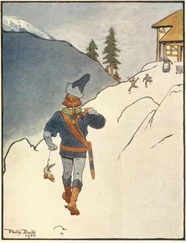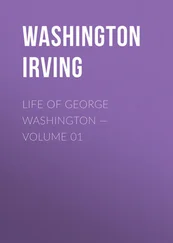Pelham Wodehouse - Not George Washington — an Autobiographical Novel
Здесь есть возможность читать онлайн «Pelham Wodehouse - Not George Washington — an Autobiographical Novel» весь текст электронной книги совершенно бесплатно (целиком полную версию без сокращений). В некоторых случаях можно слушать аудио, скачать через торрент в формате fb2 и присутствует краткое содержание. Жанр: Классическая проза, Юмористическая проза, на английском языке. Описание произведения, (предисловие) а так же отзывы посетителей доступны на портале библиотеки ЛибКат.
- Название:Not George Washington — an Autobiographical Novel
- Автор:
- Жанр:
- Год:неизвестен
- ISBN:нет данных
- Рейтинг книги:4 / 5. Голосов: 1
-
Избранное:Добавить в избранное
- Отзывы:
-
Ваша оценка:
- 80
- 1
- 2
- 3
- 4
- 5
Not George Washington — an Autobiographical Novel: краткое содержание, описание и аннотация
Предлагаем к чтению аннотацию, описание, краткое содержание или предисловие (зависит от того, что написал сам автор книги «Not George Washington — an Autobiographical Novel»). Если вы не нашли необходимую информацию о книге — напишите в комментариях, мы постараемся отыскать её.
Not George Washington — an Autobiographical Novel — читать онлайн бесплатно полную книгу (весь текст) целиком
Ниже представлен текст книги, разбитый по страницам. Система сохранения места последней прочитанной страницы, позволяет с удобством читать онлайн бесплатно книгу «Not George Washington — an Autobiographical Novel», без необходимости каждый раз заново искать на чём Вы остановились. Поставьте закладку, и сможете в любой момент перейти на страницу, на которой закончили чтение.
Интервал:
Закладка:
NOT GEORGE WASHINGTON
An Autobiographical Novel
by P. G. Wodehouse and Herbert Westbrook
PART ONE
Miss Margaret Goodwin's Narrative
CHAPTER 1
JAMES ARRIVES
I am Margaret Goodwin. A week from today I shall be Mrs. James Orlebar Cloyster.
It is just three years since I first met James. We made each other's acquaintance at half-past seven on the morning of the 28th of July in the middle of Fermain Bay, about fifty yards from the shore.
Fermain Bay is in Guernsey. My home had been with my mother for many years at St. Martin's in that island. There we two lived our uneventful lives until fate brought one whom, when first I set my eyes on him, I knew I loved.
Perhaps it is indiscreet of me to write that down. But what does it matter? It is for no one's reading but my own. James, my fiancé , is not peeping slyly over my shoulder as I write. On the contrary, my door is locked, and James is, I believe, in the smoking-room of his hotel at St. Peter's Port.
At that time it had become my habit to begin my day by rising before breakfast and taking a swim in Fermain Bay, which lies across the road in front of our cottage. The practice—I have since abandoned it—was good for the complexion, and generally healthy. I had kept it up, moreover, because I had somehow cherished an unreasonable but persistent presentiment that some day Somebody (James, as it turned out) would cross the pathway of my maiden existence. I told myself that I must be ready for him. It would never do for him to arrive, and find no one to meet him.
On the 28th of July I started off as usual. I wore a short tweed skirt, brown stockings—my ankles were, and are, good—a calico blouse, and a red tam-o'-shanter. Ponto barked at my heels. In one hand I carried my blue twill bathing-gown. In the other a miniature alpenstock. The sun had risen sufficiently to scatter the slight mist of the summer morning, and a few flecked clouds were edged with a slender frame of red gold.
Leisurely, and with my presentiment strong upon me, I descended the steep cliffside to the cave on the left of the bay, where, guarded by the faithful Ponto, I was accustomed to disrobe; and soon afterwards I came out, my dark hair over my shoulders and blue twill over a portion of the rest of me, to climb out to the point of the projecting rocks, so that I might dive gracefully and safely into the still blue water.
I was a good swimmer. I reached the ridge on the opposite side of the bay without fatigue, not changing from a powerful breast-stroke. I then sat for a while at the water's edge to rest and to drink in the thrilling glory of what my heart persisted in telling me was the morning of my life.
And then I saw Him.
Not distinctly, for he was rowing a dinghy in my direction, and consequently had his back to me.
In the stress of my emotions and an aggravation of modesty, I dived again. With an intensity like that of a captured conger I yearned to be hidden by the water. I could watch him as I swam, for, strictly speaking, he was in my way, though a little farther out to sea than I intended to go. As I drew near, I noticed that he wore an odd garment like a dressing-gown. He had stopped rowing.
I turned upon my back for a moment's rest, and, as I did so, heard a cry. I resumed my former attitude, and brushed the salt water from my eyes.
The dinghy was wobbling unsteadily. The dressing-gown was in the bows; and he, my sea-god, was in the water. Only for a second I saw him. Then he sank.
How I blessed the muscular development of my arms.
I reached him as he came to the surface.
"That's twice," he remarked contemplatively, as I seized him by the shoulders.
"Be brave," I said excitedly; "I can save you."
"I should be most awfully obliged," he said.
"Do exactly as I tell you."
"I say," he remonstrated, "you're not going to drag me along by the roots of my hair, are you?"
The natural timidity of man is, I find, attractive.
I helped him to the boat, and he climbed in. I trod water, clinging with one hand to the stern.
"Allow me," he said, bending down.
"No, thank you," I replied.
"Not, really?"
"Thank you very much, but I think I will stay where I am."
"But you may get cramp. By the way—I'm really frightfully obliged to you for saving my life—I mean, a perfect stranger—I'm afraid it's quite spoiled your dip."
"Not at all," I said politely. "Did you get cramp?"
"A twinge. It was awfully kind of you."
"Not at all."
Then there was a rather awkward silence.
"Is this your first visit to Guernsey?" I asked.
"Yes; I arrived yesterday. It's a delightful place. Do you live here?"
"Yes; that white cottage you can just see through the trees."
"I suppose I couldn't give you a tow anywhere?"
"No; thank you very much. I will swim back."
Another constrained silence.
"Are you ever in London, Miss——?"
"Goodwin. Oh, yes; we generally go over in the winter, Mr.——"
"Cloyster. Really? How jolly. Do you go to the theatre much?"
"Oh, yes. We saw nearly everything last time we were over."
There was a third silence. I saw a remark about the weather trembling on his lip, and, as I was beginning to feel the chill of the water a little, I determined to put a temporary end to the conversation.
"I think I will be swimming back now," I said.
"You're quite sure I can't give you a tow?"
"Quite, thanks. Perhaps you would care to come to breakfast with us, Mr. Cloyster? I know my mother would be glad to see you."
"It is very kind of you. I should be delighted. Shall we meet on the beach?"
I swam off to my cave to dress.
Breakfast was a success, for my mother was a philosopher. She said very little, but what she did say was magnificent. In her youth she had moved in literary circles, and now found her daily pleasure in the works of Schopenhauer, Kant, and other Germans. Her lightest reading was Sartor Resartus , and occasionally she would drop into Ibsen and Maeterlinck, the asparagus of her philosophic banquet. Her chosen mode of thought, far from leaving her inhuman or intolerant, gave her a social distinction which I had inherited from her. I could, if I had wished it, have attended with success the tea-drinkings, the tennis-playings, and the éclair-and-lemonade dances to which I was frequently invited. But I always refused. Nature was my hostess. Nature, which provided me with balmy zephyrs that were more comforting than buttered toast; which set the race of the waves to the ridges of Fermain, where arose no shrill, heated voice crying, "Love—forty"; which decked foliage in more splendid sheen than anything the local costumier could achieve, and whose poplars swayed more rhythmically than the dancers of the Assembly Rooms.
The constraint which had been upon us during our former conversation vanished at breakfast. We were both hungry, and we had a common topic. We related our story of the sea in alternate sentences. We ate and we talked, turn and turn about. My mother listened. To her the affair, compared with the tremendous subjects to which she was accustomed to direct her mind, was broad farce. James took it with an air of restrained amusement. I, seriously.
Tentatively, I diverged from this subject towards other and wider fields. Impressions of Guernsey, which drew from him his address, at the St. Peter's Port Hotel. The horrors of the sea passage from Weymouth, which extorted a comment on the limitations of England. England. London. Kensington. South Kensington. The Gunton-Cresswells? Yes, yes! Extraordinary. Curious coincidence. Excursus on smallness of world. Queer old gentleman, Mr. Gunton-Cresswell. He is, indeed. Quite one of the old school. Oh, quite. Still wears that beaver hat? Does he really? Yes. Ha, ha! Yes.
Читать дальшеИнтервал:
Закладка:
Похожие книги на «Not George Washington — an Autobiographical Novel»
Представляем Вашему вниманию похожие книги на «Not George Washington — an Autobiographical Novel» списком для выбора. Мы отобрали схожую по названию и смыслу литературу в надежде предоставить читателям больше вариантов отыскать новые, интересные, ещё непрочитанные произведения.
Обсуждение, отзывы о книге «Not George Washington — an Autobiographical Novel» и просто собственные мнения читателей. Оставьте ваши комментарии, напишите, что Вы думаете о произведении, его смысле или главных героях. Укажите что конкретно понравилось, а что нет, и почему Вы так считаете.



